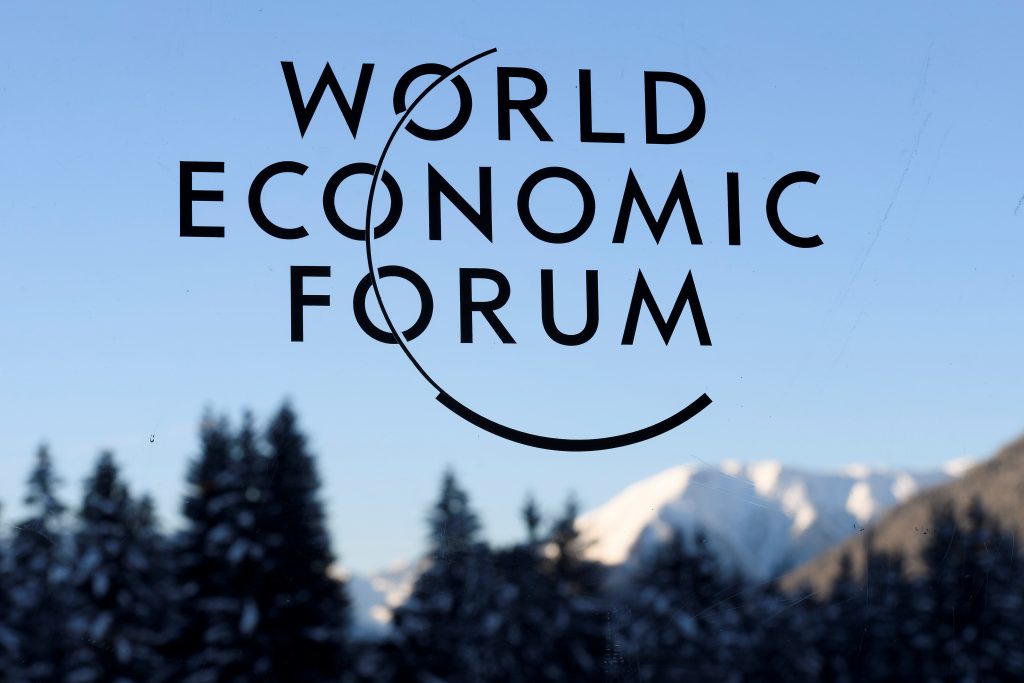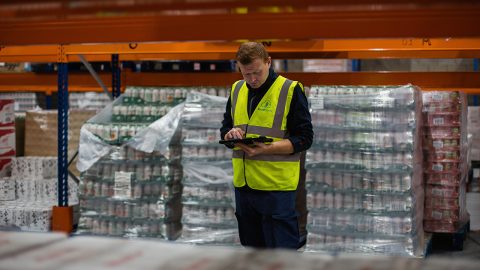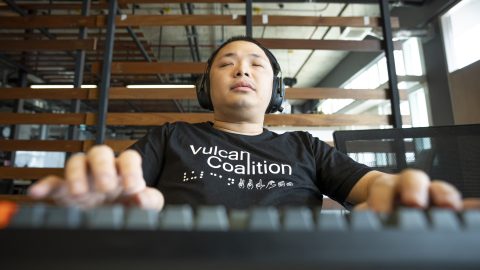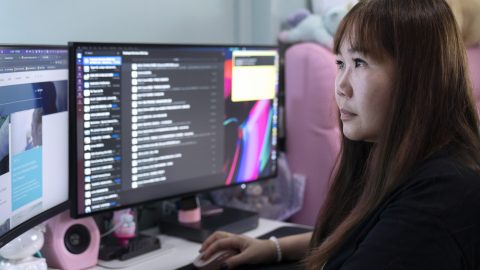Jean-Philippe Courtois and Arjun Sethi at the World Economic Forum: Trust is the new currency for success
Business leaders are now well-versed on the benefits of embracing digital. Globally, we have seen over $70 billion invested in Artificial Intelligence (AI) over the last two years, according to figures from A.T. Kearney. But at this year’s World Economic Forum in Davos, Switzerland, the conversation centered on the cultural side of technological change.
Jean-Philippe Courtois, Microsoft’s EVP and president of global sales, marketing and operations, was joined by Arjun Sethi, global lead of A.T. Kearney’s digital transformation practice, to chair a global CEO roundtable, examining how to successfully drive a cultural shift – especially challenging in large enterprises – and how to bring people along on an organization’s digital journey.
As the dust settled on 2017’s World Economic Forum, we caught up with Courtois and Sethi to get the scoop on what was discussed.
Transform: When it comes to technology, what was the focus for CEOs at this year’s World Economic Forum?
JPC: Artificial Intelligence, in all its guises, was one of the biggest technologies we heard about at the World Economic Forum this year. But a much bigger focus was people. As businesses embrace more technology, such as AI, what can we do to address unease around potential job losses? How can businesses make sure that they are as transparent as possible, and build trust among staff?
At Microsoft, we have spent the last two years driving a huge cultural shift in our company. We’ve removed certain processes that we saw as a barrier to growth. We’ve changed our mindset, and today are focused more on continual learning and experimentation than on hitting specific metrics at specific points in time. This naturally opens up the company to new risks and requires a lot of trust. But having a culture of learning and experimentation means we’re open to new ideas and opportunities, which will help us to succeed in the long term.
AS: For me, one of the “a-ha” moments of the discussion was an acknowledgement that organizations have traditionally placed too great an emphasis on technologies in isolation. Instead of trying to figure out the “digital end-game,” executives need to understand that digital has no end-game. Your customers, employees and industry landscape are in constant flux. Businesses need to have the right culture that prepares them to react more quickly to new developments, to really extract value from technology.
Instead of trying to figure out the ‘digital end-game,’ executives need to understand that digital has no end-game. Your customers, employees and industry landscape are in constant flux.
Transform: Was there any consensus from global CEOs on the best place to start, when it comes to implementing massive organizational change?
AS: Roy Williamson, who leads BP’s Castrol innoVentures, recently said that “digital reincarnation is not a choice but a necessity which needs to be executed from the middle.” This involves moving away from a traditional “top-down” or “bottom-up” strategy. A “middle-empowered” leadership is an effective way to drive change across the entire organization. With this model in place, digital thinking can very quickly become mainstream.
Ultimately, cultural change must involve all levels, or it won’t succeed. There is huge value in considering shared goals, so that every person, from front-of-line staff to senior management, shares a common purpose.
Transform: How will the digital era change and shape the global workforce over the next 10 years?
JPC: The fundamental skill sets required in an organization will evolve to meet the needs of the new workforce. Demand will grow for roles such as data scientists, customer experience specialists, human-centric designers, ethnographers and innovators. This new workforce will need individuals and teams who can work in an agile environment, where rapid development and prototyping become the new normal. All jobs will require digital skills, and all staff will need to be able to use productivity tools to embrace a completely new way of thinking.
Transform: What’s more important, new technologies or a new mindset?
AS: Innovations help us to improve processes and try new things. But it’s crucial that any organizational change is driven from the inside-out. If companies succeed in this, whole economies will benefit from more digital-centric companies with a focus on people, processes and technology, working in harmony.
JPC: As an engineering-led company, we’ve always been great at talking about technology. But today, our conversations start with a customer’s business priorities, desired outcomes and success. We need to help them see how technology can help them to engage more deeply with employees, raise the bar on operations and create new products. When I speak to global CEOs, they agree: When it comes to organizational transformation, the most important tool to have is a growth mindset, and the most important currency is trust.
Photo: A sign and logo of the World Economic Forum is seen on the third day of the Forum’s annual meeting, on January 19, 2017 in Davos. FABRICE COFFRINI/AFP/Getty Images








